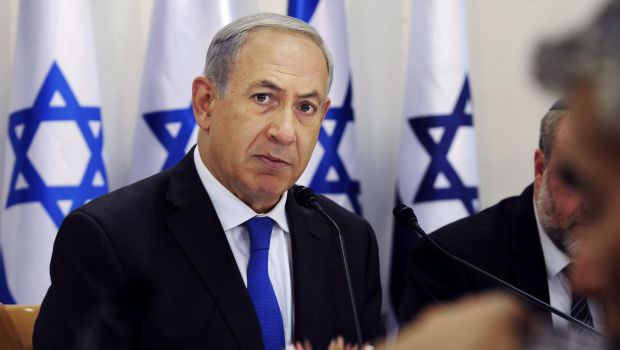It is difficult not to accept claims that the escalation in the Israeli government’s discourse regarding the basis for a negotiated settlement and its settlement activity on the ground are part of an attempt by Prime Minister Netanyahu to derail the ongoing negotiations with the Palestinians. One might ask: What would prompt Netanyahu to take this approach, particularly given that bilateral talks—if they do not include any prior commitment to freeze settlement activity—serve Israeli interests?
We have seen Palestinian denials regarding the prospects of achieving tangible progress in negotiations amid Israeli leaks regarding differences of opinion on Jerusalem, the Jordan Valley, and settlement activity. Netanyahu categorically rejecting any division of Jerusalem or the establishment of a Palestinian capital in East Jerusalem doesn’t help, either. It is not difficult to understand this, particularly amid the controversy that has ignited in Israel at the highest level against the backdrop of the negotiations. In fact, perhaps the only way that this makes sense is if the negotiations that Tel Aviv is discussing are completely different to the negotiations that Palestinian chief negotiator Saeb Erekat and his team are considering.
In this case, we cannot ignore the possibility of the negotiations being derailed at some point, especially when the suggestions for a political solution are so undesirable to the Israeli side. The logic of politics tempts us to block any suggestions that are supported by the Americans and the international community but that are not acceptable to Israel, particularly as in such cases the Palestinians are invariably blamed for thwarting the efforts of US Secretary of State John Kerry.
However, it is more likely that Israel’s current behavior aims to influence the course of the negotiation process, not derail it. Tel Aviv could be seeking first to create a specific reality on the ground, following which it will be very difficult to change this through the negotiations. Second, the Israelis could be seeking to pre-empt any ideas from the Americans that are not in line with the Israeli vision.
This means that the “failure scenario” is not the only fate facing the negotiations, according to Israel’s calculations. In fact, the Palestinian negotiators may find themselves facing one of two other scenarios as the deadline for the end of negotiations nears.
First would be an attempt to create a long-term transitional solution that includes the creation of a Palestinian state within temporary borders, with talks on a final resolution being delayed. This scenario is preferred by the Netanyahu government but rejected by the Palestinian side, because in principle it is no solution to the situation on the ground today.
Second would be an American proposal of a compromise solution supported by Europe, and maybe by Arabs and Russians as well, by agreement on a transitional solution with the cover of a “declaration of principles” that includes the basis of negotiations on the final resolution within a specific timeframe. This would allow the Palestinians and Israelis to claim that the transitional solution does not include any concessions, because it does not prejudice their ultimate demands.
This second scenario poses a number of dangers to the Palestinian cause, particularly amid reports about US efforts to ensure that any “declaration of principles” is based on the “exchange of land and rights.” This “exchange” could be based on the de facto situation on the ground today, at least according to the Israeli reading, and include joint international administration of Old Jerusalem, Israeli military presence in specific areas in the Jordan Valley, and, before all that, the recognition of Israel as a Jewish state.
Whether there is an attempt to impose a transitional solution through the announcement of a “declaration of principles” or not, the experience over the last two decades has confirmed Israel’s attempts to turn any transitional resolution into a final one.
This is a threat that means that a Palestinian withdrawal would be less costly than continuing in these bilateral talks under present conditions, particularly if they continue according to the rules of a game controlled by American–Israeli agreements. This could lead to a new regional equation that might redraw the map of the region according to American-Israeli interests, with Palestinian rights being the primary victim.
The counterpoint to this piece can be read here.
